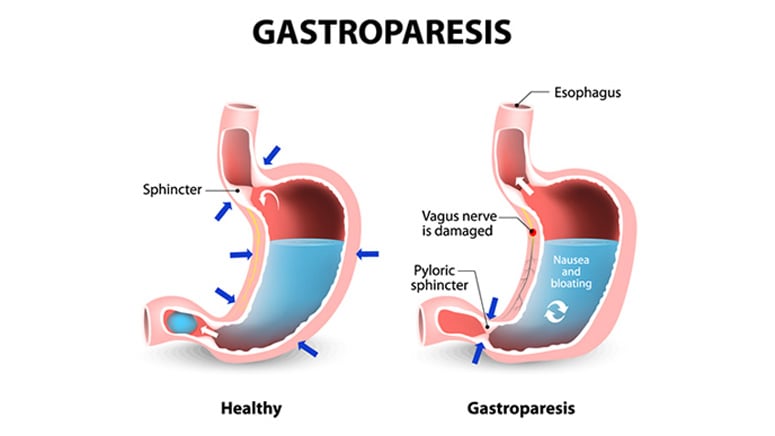Gastroparesis

Gastroparesis [1] is a motor disorder of the stomach characterized by the slow emptying of its contents (without obvious mechanical obstruction) leading to gastric retention of food and distention of the wall of the stomach.
Common causes are idiopathic gastroparesis (in ~ 20% of cases can be caused by CMV, EBV, HHV-3 viruses) and diabetes mellitus (one of the clinical forms of diabetic autonomic neuropathy). The general cause is the deterioration of the function of the intestinal muscles that allow food to move, which subsequently leads to poor gastric emptying. These muscles work independently of our will. Their violation is most common in long-term diabetes [2]. In addition, gastric impulse slows down in smokers and in patients with Parkinson’s disease [3]. Transmission of neuralgia in the stomach also occurs in scleroderma, which is an autoimmune disease of the connective tissue. Damage to the nerve function that controls gastric motility sometimes occurs after extensive abdominal surgery.
Other related causes are drugs (e.g. opioids, anticholinergics, and GLP-1 analogs), Parkinson’s disease, systemic sclerosis, SLE, paraneoplastic syndromes, amyloidosis, systemic mastocytosis, and intestinal ischemia.













